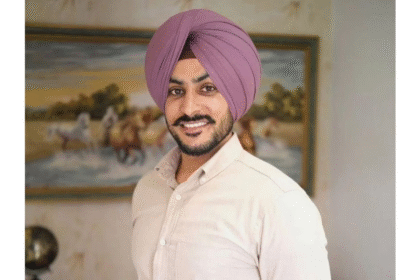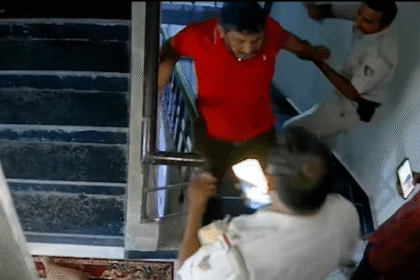India Blocks UN Expert from Air India Crash Probe: 21 Dead
India denies UN aviation investigator access to probe Air India crash that killed 21, sparking concerns over international oversight and transparency
June 25 (Reuters) – India would not allow a UN investigator to join a probe of a crashed Air India jet that some safety experts had criticized for delays in analysis of crucial black box data, two senior sources familiar with the matter told Reuters.
Earlier this week, the United Nations aviation agency took the unusual step of offering India one of its investigators to provide assistance following the Boeing 787-8 Dreamliner crash killing 260 people in Ahmedabad on June 12.

Previously, the International Civil Aviation Organization has deployed investigators to help with certain probes, such as the downing of a Malaysian plane in 2014 and a Ukrainian jetliner in 2020, but those times the agency had been asked for assistance.
ICAO had asked for the investigator who was in India to be given observer status, but Indian authorities refused the offer, the sources said. The news was first reported on Thursday by the Indian news channel Times Now.
India’s Aircraft Accident Investigation Bureau (AAIB), which is leading the probe into the world’s deadliest aviation accident in a decade, did not return a request for comment. ICAO was not immediately available for comment.
India’s civil aviation ministry said on Thursday that flight recorder data around two weeks after the crash.
Previously, safety experts had questioned a lack of information about the probe, including the status of the combined black box unit recovered on June 13, along with a second set that was found on June 16.
Questions were also raised on whether the recorders would be read in India or in the U.S. since the National Transportation Safety Board is participating in the investigation. The Indian government held only one press conference on the incident, and no questions were taken.
Under international rules known throughout the industry by their legal name “Annex 13,” the decision of where to read flight recorders should be made immediately in case the evidence obtained could avert future tragedies.
Earlier this week, an Indian aviation ministry official who declined to be named said the department has been “following all the ICAO protocols.” The official added that media representatives have made updates on important events.
Most air crashes are caused by multiple factors, with a preliminary report expected about 30 days after the accident.

(This story has been refiled to correct the dateline)
In a significant development following the tragic crash of Air India Flight AI171 on June 12, 2025, which resulted in the loss of 270 lives, India has declined a request from the United Nations to allow an aviation expert to participate in the investigation. Sources familiar with the matter have confirmed that the International Civil Aviation Organization (ICAO) offered to send an investigator to assist with the probe, but Indian authorities refused the offer. This decision has raised concerns among international aviation experts and organizations about the transparency and thoroughness of the investigation.
The Boeing 787-8 Dreamliner, bound for London, crashed shortly after takeoff from Sardar Vallabhbhai Patel International Airport in Ahmedabad. The aircraft, carrying 242 passengers and crew members, plummeted into a hostel building near BJ Medical College, resulting in 270 fatalities, including several on the ground. The Aircraft Accident Investigation Bureau (AAIB) initiated a probe immediately, recovering the cockpit voice recorder (CVR) and flight data recorder (FDR) within days of the incident. The AAIB is leading the investigation, with support from the U.S. National Transportation Safety Board (NTSB) and Boeing.
Despite the gravity of the situation, India has faced criticism for its handling of the investigation. The refusal to allow a UN aviation investigator to participate has drawn attention, especially given that ICAO experts were involved in previous major incidents, such as the Malaysian and Ukrainian plane tragedies. Furthermore, the absence of a designated lead investigator and delays in appointing one have raised concerns about the efficiency and urgency of the probe. Aviation experts emphasize the importance of a prompt and thorough investigation to determine the cause of the crash and prevent future tragedies.
The recovered black boxes are crucial to understanding the sequence of events leading to the crash. However, the decoding process has faced challenges. The newly inaugurated black box analysis laboratory at the AAIB headquarters in New Delhi is equipped for such tasks. Still, officials have indicated that if the recorders require specialized processing beyond the current capabilities, data may be processed at specialized international labs, with the United States being a likely option.
The delay in appointing a lead investigator and the lack of transparency regarding the analysis of the black boxes have led to questions about the effectiveness of the investigation. Aviation safety experts stress the importance of adhering to international protocols and ensuring that all aspects of the investigation are conducted with the highest standards of transparency and accountability.
The decision to deny entry to a UN aviation investigator has sparked reactions from various quarters. International aviation organizations, including the International Federation of Air Line Pilots Associations (IFALPA), have offered technical expertise to assist in the investigation. IFALPA expressed its readiness to provide expert technical and other forms of assistance, share global best practices, and offer personnel to collaborate closely with the investigators.
The refusal to accept international assistance has raised concerns about India’s commitment to transparency and adherence to international aviation standards. Experts argue that involving international experts can enhance the credibility of the investigation and ensure that all potential factors contributing to the crash are thoroughly examined.
As the investigation continues, there are growing calls for greater transparency and accountability. The public and international community are closely monitoring the progress of the probe, emphasizing the need for a comprehensive and impartial investigation. The final report, expected within a year, will be crucial in determining the cause of the crash and implementing measures to prevent similar incidents in the future.
In conclusion, while India has initiated an investigation into the Air India crash, the refusal to allow international participation and the delays in key aspects of the probe have raised concerns. Ensuring transparency, adhering to international protocols, and involving global experts are essential steps to uphold the integrity of the investigation and maintain public trust in aviation safety.








